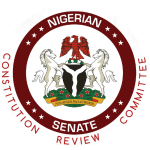Section 130. Establishment of the office of President
(1) There shall be for the Federation a President.
(2) The President shall be the Head of State, the Chief Executive of the Federation and Commander-in-Chief of the Armed Forces of the Federation.
Section 131. Qualification for election as President
A person shall be qualified for election to the office of the President if –
(a) he is a citizen of Nigeria by birth;
(b) he has attained the age of forty years;
(c) he is a member of a political party and is sponsored by that political party; and
(d) he has been educated up to at least School Certificate level or its equivalent.
Section 132. Election of the President: general
(1) An election to the office of President shall be held on a date to be appointed by the Independent National Electoral Commission.
(2) An election to the said office shall be held on a date not earlier than sixty days and not later than thirty days before the expiration of the term of office of the last holder of that office.
(3) Where in an election to the office of President one of the two or more candidates nominated for the election is the only candidate after the close of nomination, by reason of the disqualification, withdrawal, incapacitation, disappearance or death of the other candidates, the Independent National Electoral Commission shall extend the time for nomination.
(4) For the purpose of an election to the office of President, the whole of the Federation shall be regarded as one constituency.
(5) Every person who is registered to vote at an election of a member of a legislative house shall be entitled to vote at an election to the office of President.
Section 133. Election: single presidential candidate
A candidate for an election to the office of President shall be deemed to have been duly elected to such office where, being the only candidate nominated for the election –
(a) he has a majority of YES votes over NO votes cast at the election; and
(b) he has not less than one-quarter of the votes cast at the election in each of at least two-thirds of all the States in the Federation and the Federal Capital Territory, Abuja
Section 134. Election: two or more presidential candidates
(1) A candidate for an election to the office of President shall be deemed to have be been duly elected, where, there being only two candidates for the election –
(a) he has the majority of votes cast at the election; and
(b) he has not less than one-quarter of the votes cast at the election in each of at least two-thirds of all the States in the Federation and the Federal Capital Territory, Abuja.
(2) A candidate for an election to the office of President shall be deemed to have been duly elected where, there being more than two candidates for the election-
(a) he has the highest number of votes cast at the election; and
(b) he has not less than one-quarter of the votes cast at the election each of at least two-thirds of all the States in the Federation and the Federal Capital Territory, Abuja.
(3) In a default of a candidate duly elected in accordance with subsection (2) of this section their shall be a second election in accordance with subsection (4) of this section at which the only candidate shall be –
(a) the candidate who scored the highest number of votes at any election held in accordance with the said subsection (2) of this section; and
(b) one among the remaining candidates who has a majority of votes in the highest number of States, so however that where there are more than one candidate with majority of votes in the highest number of States, the candidate among them with the highest total of votes cast at the election shall be the second candidate for the election.
(4) In default of a candidate duly elected under the foregoing subsections, the Independent National Electoral Commission shall within seven days of the result of the election held under the said subsections, arrange for an election between the two candidates and a candidate at such election shall be deemed elected to the office of President if –
(a) he has a majority of votes cast at the election; and
(b) he has not less than one-quarter of the votes cast at the election in each of at least two-thirds of all the States in the Federation and the Federal Capital Territory, Abuja
(5) In default of a candidate duly elected under subsection (4) of this section, the Independent National Electoral Commission shall, within seven days of the result of the election held under the aforesaid subsection (4), arrange for another election between the two candidates to which the subsection relates and a candidate at such election shall be deemed to have been duly elected to the office of President, if he has a majority of the votes cast at the election.
Section 135. Tenure of office of President
(1) Subject to the provisions of this Constitution, a person shall hold the office of President until –
(a) when his successor in office takes the oath of that office;
(b) he dies whilst holding such office; or
(c) the date when his resignation from office takes effect; or
(d) he otherwise ceases to hold office in accordance with the provisions of this Constitution.
(2) Subject to the provisions of subsection (1) of this section, the President shall vacate his office at the expiration of a period of four years commencing from the date, when –
(a) in the case of a person first elected as President under this Constitution, he took the Oath of Allegiance and the oath of office; and
(b) in any other case, the person last elected to that office under this Constitution took the Oath of Allegiance and oath of office or would, but for his death, have taken such Oaths.
(3) If the Federation is at war in which the territory of Nigeria is physically involved and the President considers that it is not practicable to hold elections, the National Assembly may by resolution extend the period of four years mentioned in subsection (2) of this section from time to time; but no such extension shall exceed a period of six months at any one time.
Section 136. Death, etc. of president-elect before oath of office.
(1) If a person duly elected as President dies before taking and subscribing the Oath of Allegiance and oath of office, or is for any reason whatsoever unable to be sworn in, the person elected with him as Vice-President shall be sworn in as President and he shall nominate a new Vice-President who shall be appointed by the President with the approval by a simple majority of the National Assembly at a joint sitting.
(2) Where the persons duly elected as President and Vice President die or are unable for any reason whatsoever to assume office before the inauguration of the National Assembly, the Independent National Electoral Commission shall immediately conduct an election for a President and the Vice-President.
Section 137. Disqualifications.
(1) A person shall not be qualified for election to the office of President if –
(a) subject to the provisions of section 28 of this Constitution, he has voluntarily acquired the citizenship of a country other than Nigeria or, except in such cases as may be prescribed by the National Assembly, he has made a declaration of allegiance to such other country; or
(b) he has been elected to such office at any two previous elections; or
(c) under the law in any part of Nigeria, he is adjudged to be a lunatic or otherwise declared to be of unsound mind; or
(d) he is under a sentence of death imposed by any competent court of law or tribunal in Nigeria or a sentence of imprisonment or fine for any offence involving dishonesty or fraud (by whatever name called) or for any other offence, imposed on him by any court or tribunal or substituted by a competent authority for any other sentence imposed on him by such a court or tribunal; or
(e) within a period of less than ten years before the date of the election to the office of President he has been convicted and sentenced for an offence involving dishonesty or he has been found guilty of the contravention of the Code of Conduct; or
(f) he is an undischarged bankrupt, having been adjudged or otherwise declared bankrupt under any law in force in Nigeria or any other country; or
(g) being a person employed in the civil or public service of the Federation or of any State, he has not resigned, withdrawn or retired from the employment at least thirty days before the date of the election; or
(h) he is a member of any secret society; or
(i) he has been indicted for embezzlement or fraud by a Judicial Commission of Inquiry or an Administrative Panel of Inquiry or a Tribunal set up under the Tribunals of Inquiry Act, a Tribunals of Inquiry Law or any other law by the Federal or State Government which indictment has been accepted by the Federal or State Government, respectively; or
(j) he has presented a forged certificate to the Independent National Electoral Commission.
(2) Where in respect of any person who has been –
(a) adjudged to be a lunatic;
(b) declared to be of unsound mind;
(c) sentenced to death or imprisonment; or
(d) adjudged or declared bankrupt
(e) any appeal against the decision is pending in any court of law in accordance with any law in force in Nigeria, subsection (1) of this section shall not apply during a period beginning from the date when such appeal is lodged and ending on the date when the appeal is finally determined or, as the case may be, the appeal lapses or is abandoned, whichever is earlier.
Section 138 . President: disqualification from other jobs.
The President shall not, during his tenure of office, hold any other executive office or paid employment in any capacity whatsoever.
Section 139. Determination of certain questions relating to election
The National Assembly shall by an Act make provisions as respects –
(a) persons who may apply to the Court of Appeal for the determination of any question as to whether;
(i) any person has been validly elected to the office of President or Vice-President
(ii) the term of office of the President or Vice President has cease, or
(iii) the office of the President or Vice-President has become vacant
(b) circumstances and manner in which, and the conditions upon which such application may be made; and
(c) powers, practice and procedure of the Court of Appeal in relation to any such application.

